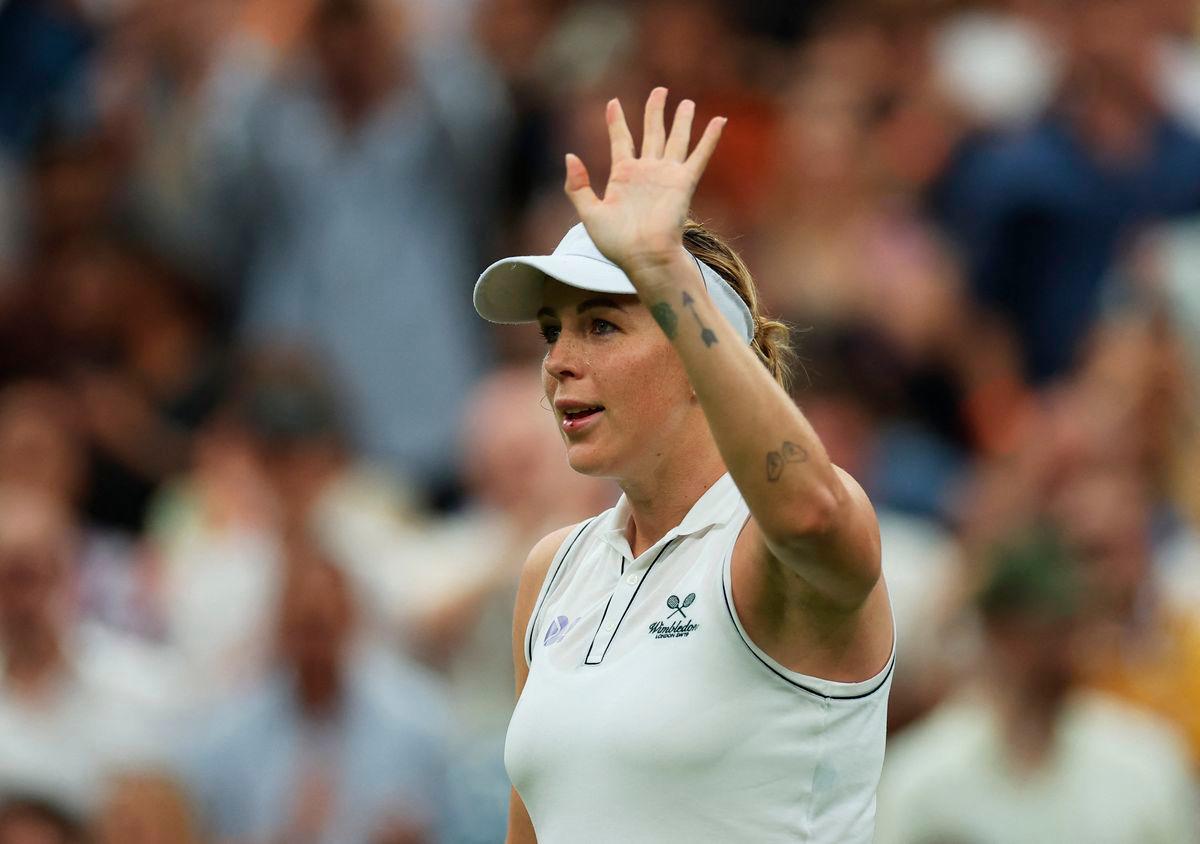WIMBLEDON'S automated line-calling technology came under fire on Sunday after an embarrassing malfunction robbed Anastasia Pavlyuchenkova of a point during her last-16 victory over Britain's Sonay Kartal on Centre Court.
Russian Pavlyuchenkova had reached game point at 4-4 in the opening set when Kartal hit a shot that looked clearly long but there was no call and Pavlyuchenkova stopped play.
An automated voice call of “STOP STOP” rang out and confusion reigned as umpire Nico Helwerth sought advice from tournament organisers via telephone.
Television replays showed that Kartal's shot was clearly out, yet Helwerth ruled that because the Hawk-Eye technology had not tracked the ball, the point needed to be replayed.
Pavlyuchenkova went on to drop serve and was fuming at the changeover, telling the umpire: “Because she is local, they can say whatever. You took the game away from me. They stole the game from me. You stole the game from me”.
The 34-year-old quickly recovered and showed the resilience that has marked her long career by reaching the quarter-finals with a 7-6(3) 6-4 win.
But the main talking point was Wimbledon's automated line-calling system that has replaced human judges this year.
Operator error
Tournament officials later said the problem had been caused by operator error and that the umpire had followed the correct protocols, although Pavlyuchenkova felt that he should have intervened to correct an obvious mistake.
“We were waiting for a decision as the system was down, but I was expecting to hear if they said the ball was in or out,“ Pavlyuchenkova said.
“Instead they just said, replay the point. It was tricky especially as it was a very crucial moment in the match.
“I expected a different decision. I just thought also the chair umpire could take the initiative. That’s why he’s there sitting on the chair. He also saw it (was) out, he told me after the match. I thought he would do that, but he didn’t.
“I think it’s also difficult for him. He probably was scared to take such a big decision.”
Asked how she would have felt if the point had cost her the match, Pavlyuchenkova raised a smile: “I would just say that I hate Wimbledon and never come back here.”
Kartal unsighted
Kartal said she had been unsighted as to whether her shot was out.
“That situation is a rarity. I don’t think it’s really ever happened,“ she said. “It’s tough luck. What can you do? The umpire is trying his best. I think he handled it fine.”
Pavlyuchenkova, who felt a back-up system needed to be in place, is not the first person this week to question the Electronic Line Calling (ELC) system. Britain's Emma Raducanu said there had been wrong calls during her loss to Aryna Sabalenka.
“No, I don’t (trust the system) -- I think the other players would say the same thing, there were some pretty dodgy ones but what can you do?,“ she said after her defeat.
Britain's Jack Draper also believed it was not 100% accurate while Swiss player Belinda Bencic said it was a hot topic in the locker rooms. Pavlyuchenkova said it was something that needed to be addressed.
“I think since we have already automatic line-calling and so much invested into this, we should probably look into something else to have better decisions on it,“ she said.
In a later statement, organisers said they had apologised to both of the players, saying an investigation found that the ELC system had been deactivated for one game, with three calls not picked up, two of which had been called by the umpire.
“We continue to have full confidence in the accuracy of the ball-tracking technology,“ the statement said. “The live ELC system relies on the Hawk-Eye operators, the Review Official and the technology to work in harmony.
“This did not happen. In this instance there was a human error and as a consequence we have fully reviewed our processes and made the appropriate changes.”









